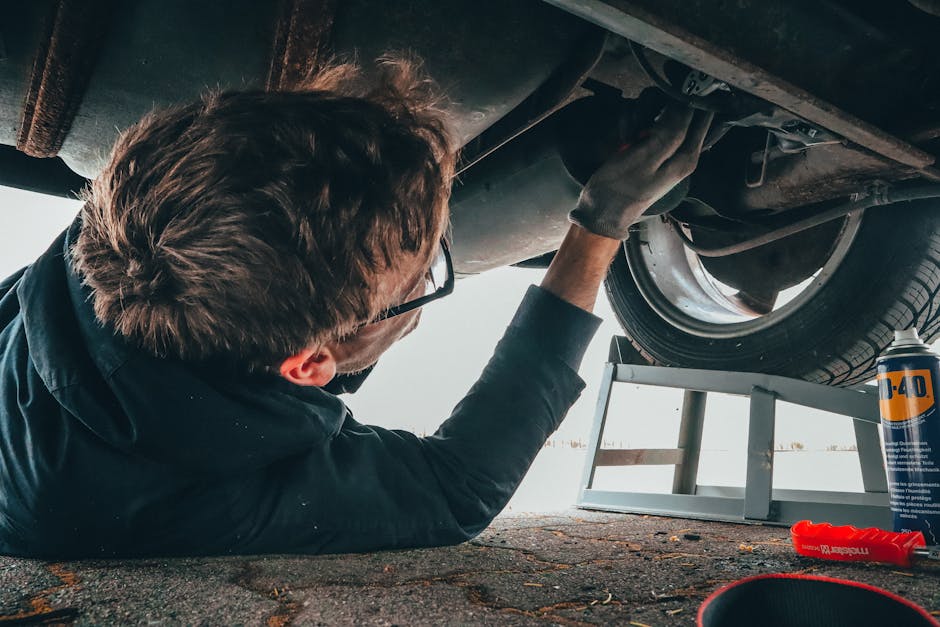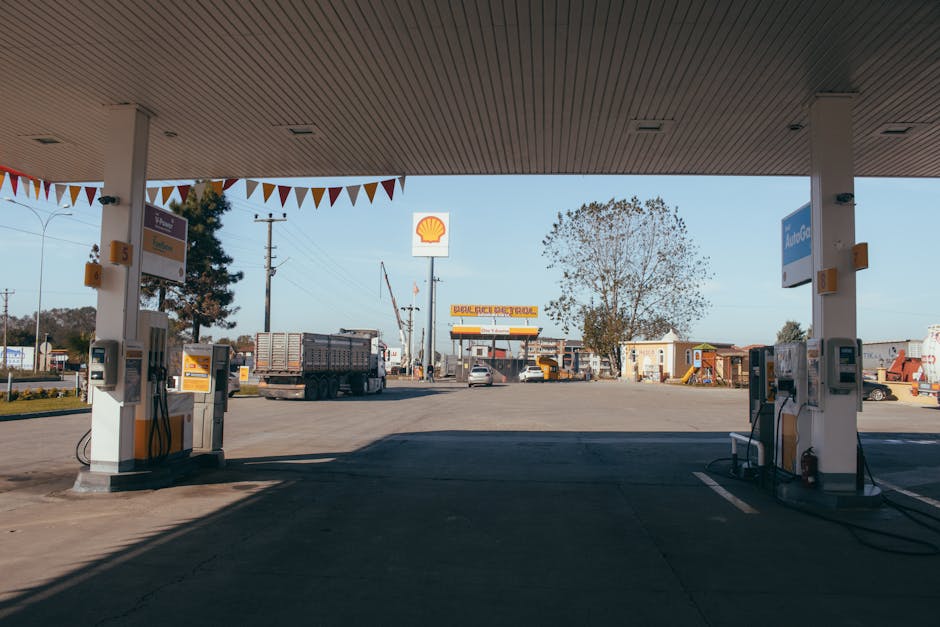Why Driving Distance Matters When Buying A Used Car With High Mileage
In the vast and ever-evolving world of used car buying, one must navigate through a myriad of considerations before making a wise investment. As the saying goes, 'A car's worth is determined by its journey, not just its destination.'
When considering purchasing a used car with high mileage, it becomes paramount to prioritise an often overlooked factor: driving distance. This figure of speech encapsulates the significance of understanding a vehicle's history in order to make an informed decision.
By evaluating wear and tear, maintenance and service records, potential mechanical issues, fuel efficiency, overall cost implications, as well as longevity and resale value, one can gain invaluable insights into the true condition and future prospects of the vehicle.
Armed with this knowledge and adopting an academic approach to such evaluations allows buyers to exercise control over their purchase decisions while ensuring durability and peace of mind amidst an ocean of possibilities.
Key Takeaways
- Driving distance is an important factor to consider when buying a used car with high mileage.
- Wear and tear evaluation should be done to assess the condition of the car.
- Maintenance and service records should be chequed to ensure the car has been well taken care of.
- Understanding the potential mechanical issues in high-mileage cars is crucial for making an informed decision.
Evaluating Wear and Tear

Evaluating wear and tear becomes crucial when considering the driving distance of a used car with high mileage. This is because the amount of driving a vehicle has undergone directly impacts its reliability and performance.
When evaluating reliability, one must take into account how much wear and tear the car has experienced over its lifespan. A higher driving distance generally implies that the vehicle has been subjected to more use, which can result in greater mechanical stress on various components. As a result, it is important to thoroughly inspect these parts for signs of damage or excessive wear.
The impact on performance should also be considered when buying a used car with high mileage. High driving distances may have led to decreased engine efficiency or reduced power output due to worn-out components, such as piston rings or valves. Additionally, other critical systems like suspension and brakes may have experienced significant wear from prolonged use, potentially affecting the overall handling and safety of the vehicle.
To accurately evaluate wear and tear, potential buyers should carefully examine maintenance records for regular servicing and repairs performed throughout the car's life. This information will provide insight into whether necessary maintenance tasks were carried out diligently or if there were any major issues addressed by previous owners. Moreover, it is advisable to hire an independent mechanic for a comprehensive inspection to identify any hidden problems that might not be apparent during a visual examination.
Considering all these factors will help determine the level of wear and tear present in a used car with high mileage, ultimately allowing buyers to make an informed decision about its reliability and future performance. Transitioning into the subsequent section about 'maintenance and service history,' understanding these aspects helps establish a comprehensive picture of the vehicle's overall condition without relying solely on its driving distance alone.
Maintenance and Service History

Examining the maintenance and service history of a vehicle can provide valuable insights into its overall condition and potential future reliability. This information is especially important when considering a used car with high mileage. By evaluating the maintenance and service records, prospective buyers can gain an understanding of how well the previous owner(s) took care of the vehicle and whether any potential red flags exist.
Here are five key aspects to consider when analysing the maintenance and service history:
Regularity of servicing: A well-maintained vehicle should have a consistent record of scheduled maintenance, such as oil changes, filter replacements, and fluid cheques. Irregular or missed services could indicate neglect on the part of previous owners.
Documentation of repairs: It is crucial to review any repair records available for the vehicle. The type and frequency of repairs can reveal recurring issues or ongoing mechanical problems that may require attention in the future.
Previous ownership: Understanding how many owners a car has had can provide insight into how it has been treated over time. Fewer owners may suggest better care, while multiple owners within a short period could be indicative of potential issues.
Accident history: Checking if the vehicle has been involved in accidents is vital for assessing its structural integrity. Any major accidents that required significant repairs might affect its long-term reliability.
Service performed by professional mechanics: Knowing whether routine maintenance was carried out by certified professionals or DIY enthusiasts is essential. Professional servicing ensures proper knowledge, skills, and equipment were employed during repairs.
By carefully reviewing these aspects within the maintenance and service history, buyers can make informed decisions about a used car's overall condition and anticipate potential mechanical issues in their purchase.
Potential Mechanical Issues

One crucial aspect to consider is the potential mechanical issues that may arise when assessing a vehicle's maintenance and service history. Common problems found in high-mileage cars can pose reliability concerns for potential buyers. As a car accumulates more miles, certain components are subjected to increased wear and tear, which could lead to costly repairs down the line.
One of the most common mechanical issues with high-mileage cars is engine problems. Over time, constant use causes internal parts to deteriorate, resulting in reduced performance and increased chances of breakdowns. Engine oil leaks, worn-out gaskets, or faulty sensors are some examples of issues that might be encountered in older vehicles.
Transmission problems also tend to surface as a car ages. High mileage can put strain on gears and clutches, leading to erratic shifting or even complete failure. Repairs or replacements for transmissions can be quite expensive, making this an important consideration when evaluating a used vehicle's reliability.
Other areas prone to mechanical issues in high-mileage cars include the suspension system, electrical components, and cooling system. Worn-out shocks or struts can affect ride quality and handling. Electrical malfunctions such as faulty wiring or failing sensors may result in various warning lights illuminating on the dashboard. Additionally, cooling systems may experience leaks or failures over time if not properly maintained.
Considering these potential mechanical issues is essential when purchasing a used car with high mileage. While regular maintenance can help mitigate some of these concerns, it is important to be aware of the additional costs that might arise from addressing these common problems.
Looking ahead at fuel efficiency and overall cost…
Fuel Efficiency and Overall Cost

Fuel efficiency and overall cost are important factors to consider when assessing the value of a high-mileage vehicle, as it could determine the financial burden associated with fuel consumption and potential repairs. Here are four reasons why these factors should be taken into account:
Fuel consumption: High mileage vehicles tend to have lower fuel efficiency due to wear and tear on the engine and other components. This means that owners of such vehicles may find themselves spending more money on gasolene compared to those driving newer, more fuel-efficient cars.
Depreciation rate: As a car accumulates miles, its value depreciates at a faster rate. This is because potential buyers see higher mileage as an indication of increased wear and tear, which can lead to costly repairs down the line. It is essential for prospective buyers of high-mileage vehicles to carefully consider how quickly their investment will lose value over time.
Potential repairs: Older cars with high mileage are more likely to require frequent maintenance and repairs. These costs can add up quickly, further increasing the overall expense associated with owning a high-mileage vehicle.
Overall cost: When considering purchasing a used car with high mileage, it is crucial to assess both the immediate cost of purchase as well as the long-term expenses related to fuel consumption and potential repairs. Neglecting these factors can lead to financial strain in the future.
Considering all these aspects, it becomes evident that fuel efficiency and overall cost play significant roles in determining the value of a high-mileage vehicle. However, there are other factors that also need consideration when evaluating such cars' worth, including longevity and resale value without explicitly mentioning 'step'.
Longevity and Resale Value

When considering the value of a high-mileage vehicle, it is important to assess its longevity and resale value as these factors can greatly impact the potential return on investment and overall satisfaction of the owner.
Performance and reliability are key considerations when evaluating a car's longevity. A well-maintained vehicle with high mileage can still provide reliable performance if it has been properly cared for throughout its lifespan. Factors such as regular oil changes, timely maintenance, and careful driving habits can contribute to the longevity of a car.
In addition to performance and reliability, resale value is another crucial aspect to consider when buying a used car with high mileage. Generally, cars with higher mileage tend to have lower resale values compared to those with lower mileage. This is because potential buyers may perceive higher mileage as an indication of increased wear and tear on the vehicle's components. However, this perception can be mitigated if the car has been well-maintained and has a documented service history.
Furthermore, the impact on insurance rates should also be taken into account when purchasing a used car with high mileage. Insurance companies often consider vehicles with higher mileage as more prone to breakdowns or accidents due to their increased usage. Consequently, insurance premiums for high-mileage cars may be higher than those for low-mileage vehicles.
Assessing the longevity and resale value of a high-mileage vehicle is essential in determining its overall value and potential return on investment. Performance and reliability play significant roles in ensuring that a high-mileage car remains dependable over time. Additionally, understanding how insurance rates may be affected by higher mileage can help prospective owners make informed decisions about their purchase. By considering these factors carefully, individuals can make more confident choices when buying a used car with high mileage.
Frequently Asked Questions
How does driving distance affect the resale value of a used car with high mileage?
The driving distance of a used car with high mileage can significantly affect its resale value and mechanical reliability.
The more miles a car has been driven, the higher the chances of wear and tear on its components. This can lead to increased maintenance costs and potential mechanical failures, reducing the vehicle's resale value.
Prospective buyers seeking control over their investment should consider lower mileage vehicles for better long-term financial stability and peace of mind regarding mechanical reliability.
Can driving distance impact the potential mechanical issues a used car with high mileage might have?
The driving distance of a used car with high mileage can have an impact on its potential mechanical issues. A greater driving distance may indicate more wear and tear on the vehicle, potentially leading to reliability issues.
Additionally, it is important to consider the relationship with previous owners as their driving habits and maintenance practises can also affect the overall condition of the car.
Therefore, when purchasing a used car with high mileage, it is crucial to thoroughly assess its driving history to make an informed decision.
Is there a correlation between driving distance and the overall cost of maintaining a used car with high mileage?
The correlation between driving distance and maintenance costs of a used car with high mileage is undeniably evident.
The impact of driving distance on mechanical issues cannot be overlooked, as prolonged usage increases wear and tear on various components.
Consequently, the cost of maintaining such a vehicle escalates significantly over time.
This relationship highlights the importance of considering driving distance when assessing the overall financial feasibility of purchasing a used car with high mileage.
Does driving distance have any influence on the fuel efficiency of a used car with high mileage?
The driving distance of a used car with high mileage can indeed have an influence on its fuel efficiency. Increased driving distance can lead to greater wear and tear on the vehicle, affecting its overall performance and reliability. This can result in decreased fuel efficiency due to factors such as engine inefficiencies and increased friction.
Therefore, when considering purchasing a used car with high mileage, it is important to take into account the potential impact that driving distance may have on its fuel efficiency and overall condition.
How does driving distance factor into evaluating wear and tear on a used car with high mileage?
Evaluating wear and tear on a used car with high mileage necessitates considering driving distance.
Ironically, the longer a vehicle has been driven, the more wear and tear it is likely to have endured.
This impacts resale value as potential buyers are wary of purchasing vehicles that have been extensively driven.
By assessing the driving distance, one can better understand the level of wear and tear on the car, ultimately influencing its market value.
Contact us to discuss our services now!

